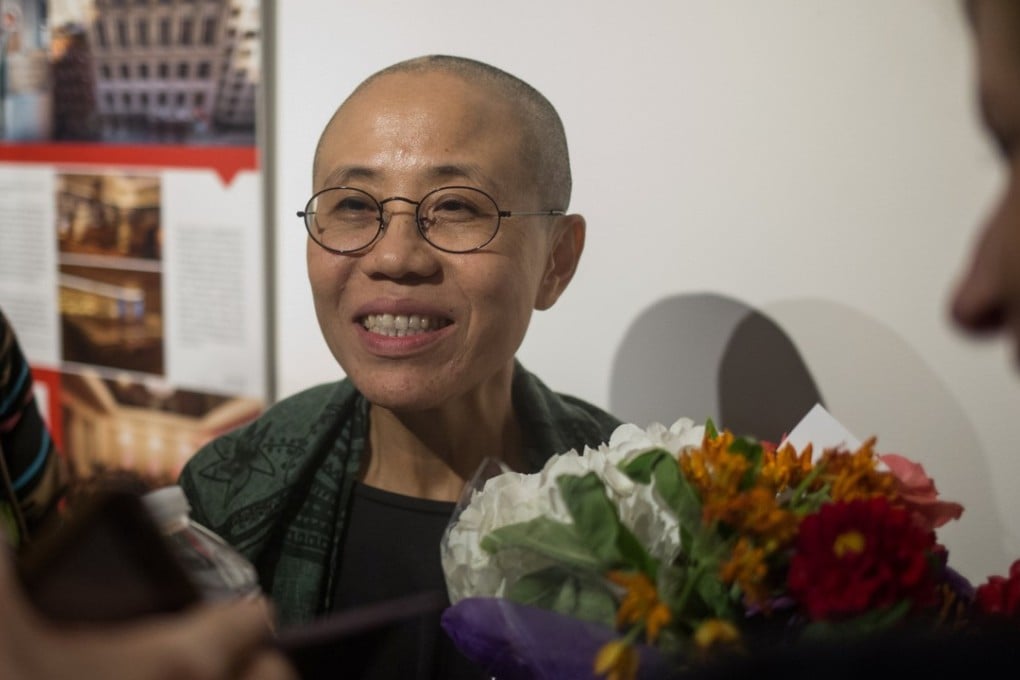Liu Xia talks about Liu Xiaobo, thanks supporters for their concern at New York human rights event
Nobel prizewinner’s widow makes her first formal appearance since leaving China at the Václav Havel Library Foundation’s discussion evening

Liu Xia, the widow of Chinese dissident Liu Xiaobo, told an audience in New York on Wednesday that even today she is unsure where to start when talking about her late husband, in her first formal appearance since leaving China after eight years of de facto house arrest.
Speaking at a panel discussion hosted by the Václav Havel Library Foundation, Liu Xia briefly talked about Liu Xiaobo, who died last July of liver cancer while on medical parole, and thanked supporters for their concern for the couple over the years.
Prompted by the moderator, Columbia University Professor Andrew Nathan of the National Endowment for Democracy, to begin the discussion with remarks on her late husband, Liu said: “Regarding Xiaobo, I think even today I still don’t know what to say.”
Looking down, she then shared a conversation she had with Liu Xiaobo in his final days. She told him that she had been contacted while he was in jail after co-authoring the human rights manifesto Charter 08.
Liu Xia, detained widow of Liu Xiaobo, tells exiled friend she is ready to ‘die at home’ in protest
“I got a message from the Kafka office in Prague,” said Liu, who has often likened her situation to the nightmarish bureaucracies of novelist Franz Kafka.